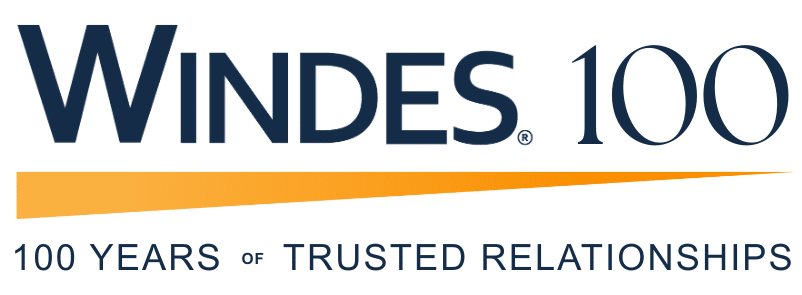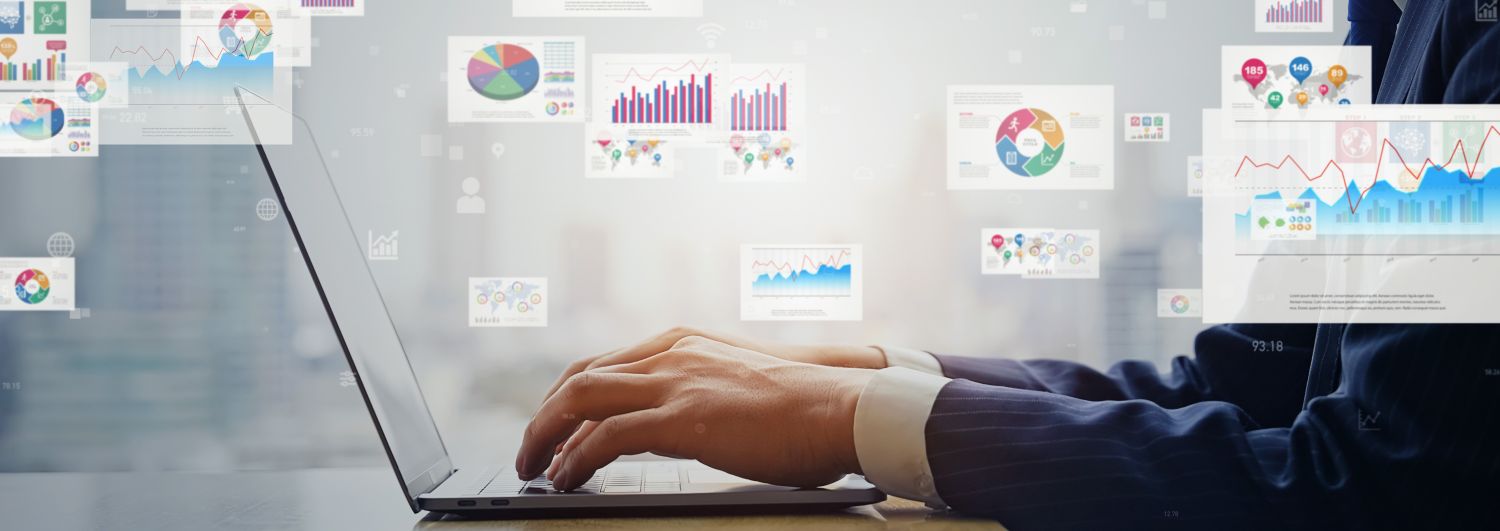Businesses of all sizes embrace cloud technology to streamline operations and gain a competitive edge. Cloud accounting software has emerged as a game-changer, revolutionizing how companies manage their finances.
One of the most significant advantages of cloud-based accounting software is its accessibility. You can use it from any device with an internet connection – laptop, tablet, or smartphone – giving you real-time insights into your business finances, whether you are at the office, on the road, or working remotely.
Cloud accounting also integrates seamlessly with a variety of third-party business apps, allowing you to automate workflows and further streamline operations. There is no need for clunky installations or maintenance on individual computers; instead, cloud solutions are hosted online, with updates and backups handled automatically by the provider. Most platforms operate on a monthly subscription basis, making them scalable and cost-effective for growing businesses. At Windes, we understand the transformative power of cloud accounting and are here to guide you on this journey as a Sage Intacct Accountants Program (SIAP) Partner.
What is Cloud-based Accounting Software?
Cloud accounting software refers to financial applications hosted on remote servers that are accessible online. Unlike traditional on-premises accounting systems, which require dedicated hardware and software installations, the software provider hosts and maintains cloud-based solutions.
Difference Between Cloud Accounting and Traditional On-premises Accounting
Accessibility
Cloud accounting provides anytime, anywhere access from any internet-connected device, while on-premises systems are typically restricted to office locations.
Scalability
Cloud solutions quickly scale to accommodate business growth without costly hardware upgrades, unlike on-premises systems, which require significant infrastructure investment.
Collaboration
Cloud accounting facilitates seamless collaboration among team members, accountants, and other stakeholders, regardless of location. On-premises systems often present challenges in sharing data and collaborating remotely.
Maintenance
Cloud providers handle software updates and maintenance, eliminating the burden on businesses and ensuring access to the latest features and security enhancements. On-premises systems require businesses to manage software updates, security patches, and hardware maintenance in-house.
Cost
Cloud accounting typically involves subscription fees, offering predictable and scalable costs compared to the upfront investment and ongoing maintenance expenses associated with on-premises systems.
How Cloud Accounting Software Works
Cloud accounting software operates on a subscription-based model. Businesses access the software through a web browser or mobile app, entering financial data directly into the system. This data is then stored securely on the cloud provider’s servers and can be accessed and analyzed from anywhere with an internet connection.
Key Features to Look for in Cloud Accounting Software
When evaluating cloud accounting platforms, prioritize features that maximize efficiency and support seamless financial management. Essential capabilities include:
Automated Bank Feeds and Reconciliation
Effortlessly sync your bank transactions for real-time visibility and quick account reconciliation, saving hours of manual entry.
Invoicing and Accounts Payable Management
Generate, send, and track invoices with ease, manage bills, and monitor payment status – all from a centralized dashboard.
Multi-User Access and Permissions
Enable secure collaboration by granting customized access to team members, accountants, and advisors, ensuring everyone stays informed and data remains protected.
Real-Time Financial Reporting
Access up-to-date insights and generate reports on demand to make timely, informed business decisions.
Automatic Updates and Data Backups
Benefit from continuous software enhancements and robust backup processes, reducing IT maintenance concerns and keeping your data safe.
Choosing software with these capabilities empowers your business to streamline accounting workflows, improve collaboration, and respond proactively to changing financial needs.
Benefits of Cloud Accounting
Automation
Streamline data entry with Auto-feed bank transactions, automated invoice creation and sending, and reconcile accounts with a few clicks for more efficient accounts payable and receivables.
Reduce manual effort and eliminate time-consuming tasks like data entry and manual calculations, freeing up valuable time for strategic decision-making.
Lower costs
Reduced IT infrastructure expenses by eliminating the need for expensive hardware, software licenses, and on-site IT support.
Minimize accounting fees by streamlining processes and improving data accuracy, leading to more efficient audits and reduced costs.
Accessibility
Work from anywhere. With an internet connection, you can access financial data and manage accounting tasks from any location, enabling remote work and increased flexibility.
Gain real-time insights and visibility into your financial performance, allowing you to make informed decisions quickly and effectively.
Data Security
Cloud providers invest heavily in robust security measures, including encryption, firewalls, and regular security audits, to safeguard your sensitive financial data.
In fact, cloud solutions often surpass traditional on-site systems when it comes to keeping your information safe. Reputable providers employ bank-level security protocols – think the same encryption and privacy standards used by major financial institutions – to protect your business data.
Beyond just keeping data secure from cyber threats, cloud platforms offer built-in redundancy and disaster recovery capabilities, minimizing the risk of data loss due to hardware failures or natural disasters. If a fire, flood, or unexpected outage occurs, your information remains safe offsite. It can be accessed from any internet-connected device, ensuring you stay up and running with minimal downtime.
Another advantage is the ability to control precisely who can access your data. Rather than emailing files or using USB drives – methods that can easily fall into the wrong hands – you can grant specific permissions to team members or advisors, keeping sensitive information under your control.
With regular backups and tightly controlled login access, cloud accounting helps you maintain both security and convenience – so you can focus on your business with peace of mind.
User Access Controls and Data Privacy
Maintain strict control over who can access your financial information with cloud accounting solutions. Modern platforms like Sage Intacct leverage advanced, bank-grade security protocols to protect your business data, including robust encryption and multi-factor authentication.
Rather than emailing sensitive files or passing around thumb drives, you can securely invite users – such as team members, external accountants, or business partners – to your accounting system with customized access permissions. Assign specific roles to limit what data each user can view, edit, or approve. This level of granular access not only safeguards your sensitive information but also keeps you in full command of your organization’s financial privacy.
Regular security updates from your cloud provider help ensure your data remains protected from evolving threats, giving you peace of mind as you collaborate across locations and devices.
Integration
Gain seamless integration with other business tools. Integrate with e-commerce platforms, payment gateways, and other business applications to streamline workflows and improve data accuracy.
Connect with your accounting team. Easily share financial data with your accountants and other advisors for collaborative decision-making.
Data Functionality
Benefit from powerful reporting and analytics. Generate customized reports, track key performance indicators (KPIs), and gain valuable insights into your business’s financial health.
Automated data entry and reconciliation minimize the risk of human error, ensuring accurate and reliable financial information.
AI Capabilities
AI-powered insights allow you to improve financial decision-making by leveraging features such as automated expense categorization, fraud detection, and cash flow forecasting.
Scalability
Quickly adapt to changing business needs. Scale your accounting solution up or down as your business grows or contracts, ensuring you always have the right resources.
Automatic Updates to Functionality
Access to the latest features. You will automatically receive the latest software updates, including new features, enhancements, and security patches, ensuring you always have access to the most advanced capabilities.
Why Move to Cloud Accounting?
Moving to cloud accounting offers numerous advantages for businesses of all sizes:
- Increased efficiency and productivity: Automate tasks, streamline workflows, and reduce manual effort, allowing your team to focus on more strategic initiatives.
- Improved decision-making: Gain real-time insights into your financial performance, enabling data-driven decisions that drive growth and profitability.
- Enhanced collaboration: Improve communication and cooperation among team members, accountants, and other stakeholders.
- Reduced costs: Lower IT infrastructure expenses, minimize accounting fees, and improve operational efficiency.
- Enhanced security and data protection: Benefit from robust security measures and disaster recovery capabilities.
- Improved customer satisfaction: Improve customer service by accessing information quickly and efficiently.
Successfully Migrating to Cloud Accounting
A successful cloud accounting migration requires careful planning and execution. Select a solution that meets your business needs and integrates seamlessly with your existing systems.
Start by choosing a reputable cloud accounting provider and signing up for a subscription that fits your requirements. Next, transfer your existing financial data by importing account balances and past transactions. Connecting your bank feeds at this stage is key – this allows transactions to flow in automatically, saving time and reducing manual entry.
Preparing for data migration is essential. Cleanse and organize your data to ensure accuracy and consistency before migrating to the cloud. Involve your accountants in the process to ensure a smooth transition.
Train your team. Provide comprehensive training on how to use the new cloud accounting software effectively. Empowering staff early helps them adapt to new workflows and reduces potential resistance.
To go live, implement a phased approach. Gradually transition to the new system to minimize disruption to your business operations.
Provide ongoing support. Offer ongoing support to your team to address any questions or challenges they may encounter.
By following these steps – selecting the right provider, preparing your data, connecting bank feeds, training your team, and providing continued support – you can ensure a smooth migration and set your business up for long-term success in the cloud.
Common Transition Mistakes
When transitioning to cloud accounting software, businesses often overlook the importance of comprehensive staff training and change management. While many focus on technical aspects like data migration and system integration, they underestimate the human element of the transition.
Proper training is crucial for successfully adopting and utilizing new cloud accounting systems. Without adequate preparation, staff may struggle to adapt to new workflows and interfaces, reducing productivity and potential resistance to change. This oversight can significantly impact the overall success of the transition and the realization of the software’s benefits.
Additionally, businesses frequently underestimate the time and resources required for a smooth transition. This process involves technical implementation and adjusting established processes, which can be time-consuming and need ongoing support.
Failing to allocate sufficient time and resources for training, data migration, and adaptation to new systems can disrupt daily operations and hinder the full realization of cloud accounting benefits.
Partner with Windes
At Windes, we are committed to helping businesses leverage the power of cloud accounting. As an SIAP Partner, we have the expertise and experience to guide you through successful cloud accounting transitions using Sage Intacct.
Contact us today to learn more about how Windes can help you unlock the full potential of cloud accounting for your business.
![]()
Windes is a Sage Intacct Accountants Program (SIAP) Partner.
If your organization currently uses or is considering Sage Intacct Cloud Accounting Software, Windes can help
implement and manage Sage Intacct tools to swiftly achieve maximum benefit and minimize disruptions to financial performance.



